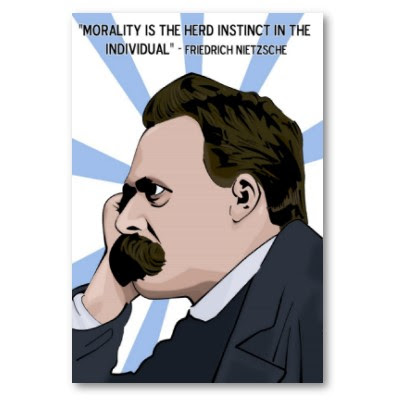 The nihilism unleashed by Nietzsche has caused more harm and suffering than can ever be measured. It turns out that much of the themes of anti-human exceptionalism we see today come right out of his playbook. For example, last week I criticized a University of Wisconsin professor named Deborah Blum for not knowing whether we—or hyenas—are the moral species. From my post:
The nihilism unleashed by Nietzsche has caused more harm and suffering than can ever be measured. It turns out that much of the themes of anti-human exceptionalism we see today come right out of his playbook. For example, last week I criticized a University of Wisconsin professor named Deborah Blum for not knowing whether we—or hyenas—are the moral species. From my post:
Blum clearly yearns for animal “morality” to be something more: “My only complaint is that the book [her review of which I was quoting] is overly careful. The authors try too hard to keep their conclusions non-threatening. I wish they’d attempted to answer that tricky question that nags at me whenever I study a captive animal. As I stand on the unrestricted side of a fence watching a hyena, and it watches me back with deep, wary eyes, which one of us is really the moral animal?”It turns out Nietzsche said the same thing as Blum a hundred years ago:
Humanity—We do not regard the animals as moral beings. But do you suppose the animals regard us as moral beings?...An animal which could speak said: “Humanity is a prejudice of which we animals at least are free.”Denying human exceptionalism leads to darkness, suffering, and death. It is very disturbing that Friedrich Nietzsche, in his growing darkness, espoused the very anti-humanism that has entered the scientific/bioethical mainstream.
You have a decision to make: double or nothing.
For this week only, a generous supporter has offered to fully match all new and increased donations to First Things up to $60,000.
In other words, your gift of $50 unlocks $100 for First Things, your gift of $100 unlocks $200, and so on, up to a total of $120,000. But if you don’t give, nothing.
So what will it be, dear reader: double, or nothing?
Make your year-end gift go twice as far for First Things by giving now.


